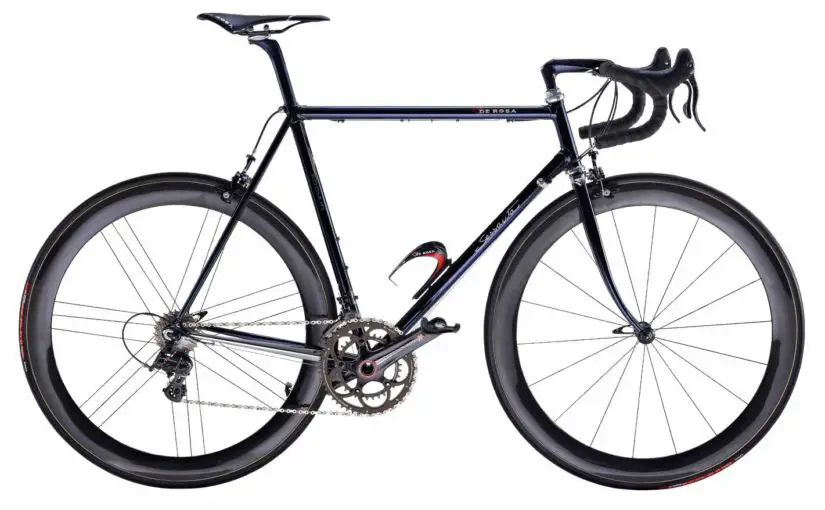Italian bicycle manufacturer De Rosa has unveiled its 60th anniversary special series of road bikes: “De Rosa 60th Anniversary – The Black Label”. There are four Black Label models, and each model is representing an era of bicycle frame materials, (and also the year that De Rosa has started using these materials): Steel (1953-the year De Rosa was founded), Titanium (1992), Aluminium (1996) and Carbon (2000).
Steel (1953)
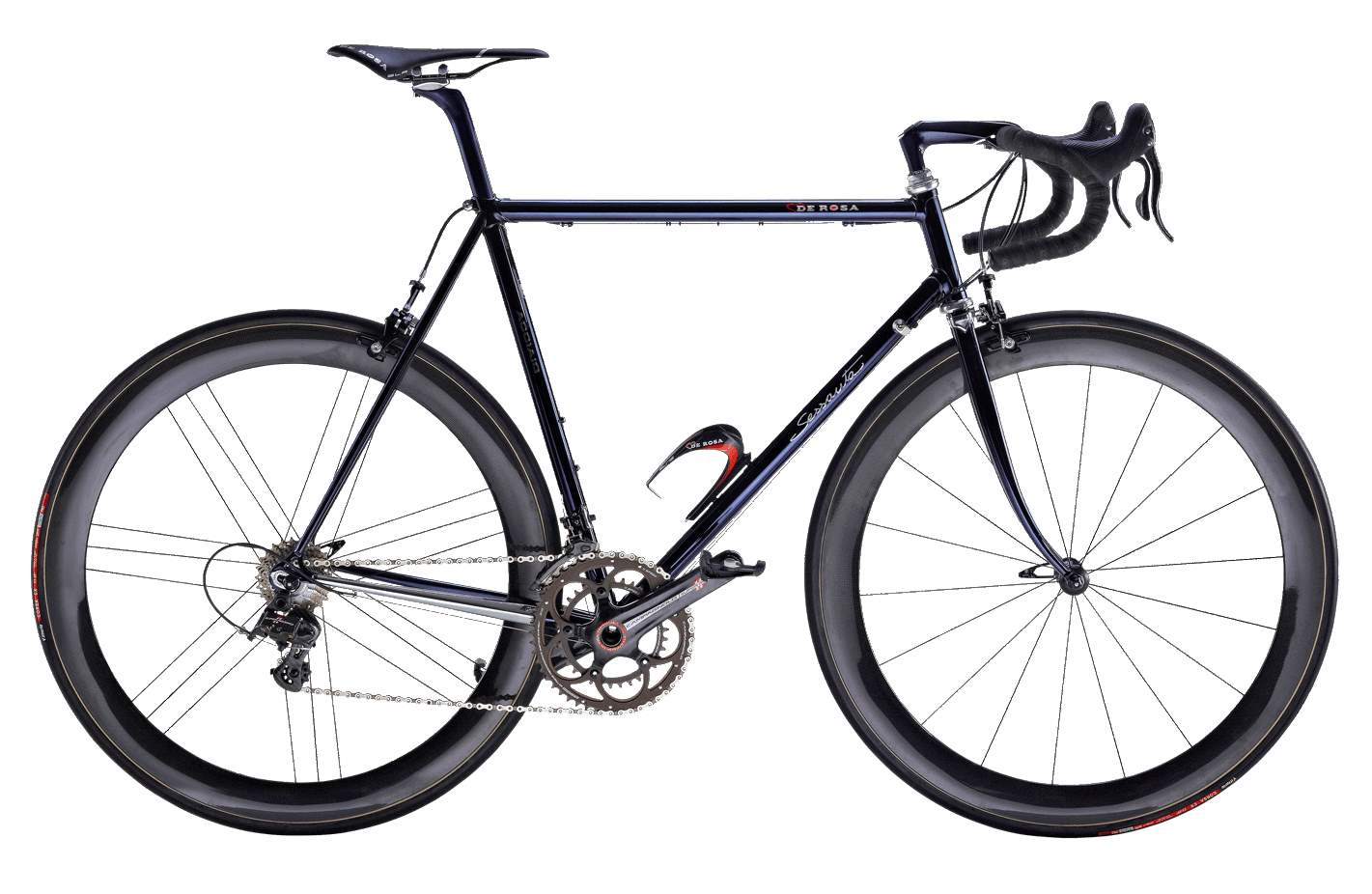
“For enthusiasts of this noble material, the bike is made only from steel. A resistant material. De Rosa has 60 years of history in the processing of steel. We know all its virtues and know how to get the best out of it. For this reason, even after 60 years, each steel frame is like it is the first frame for us”
Ugo De Rosa
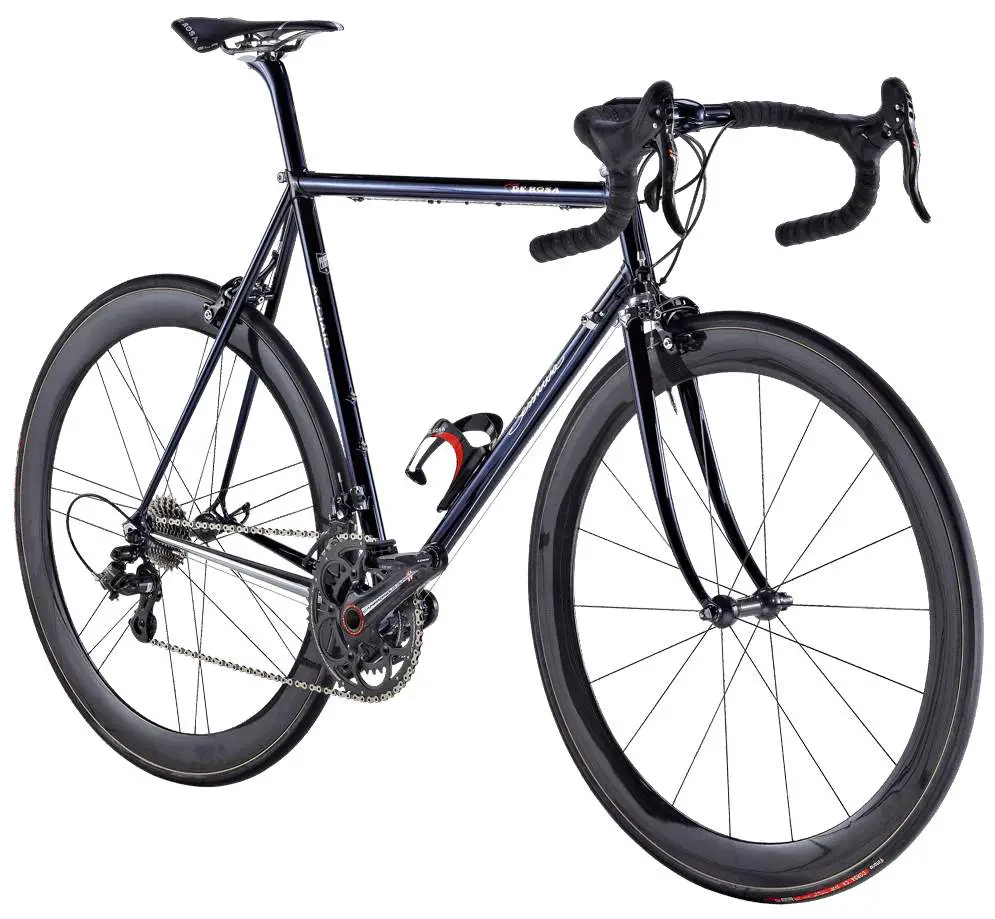
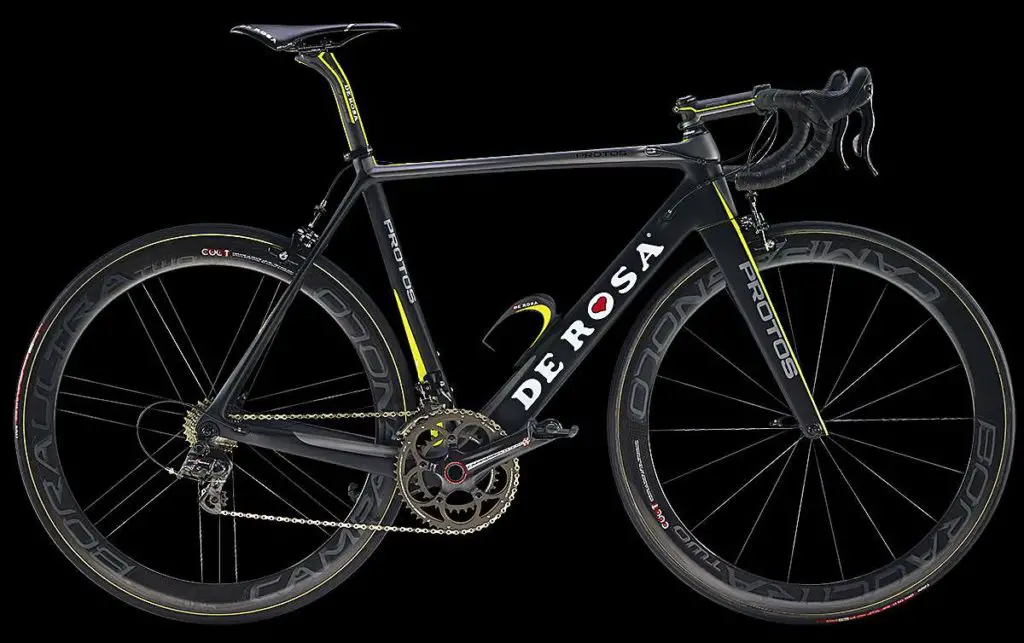
Related: De Rosa 2014 Collection
Titanium (1992)
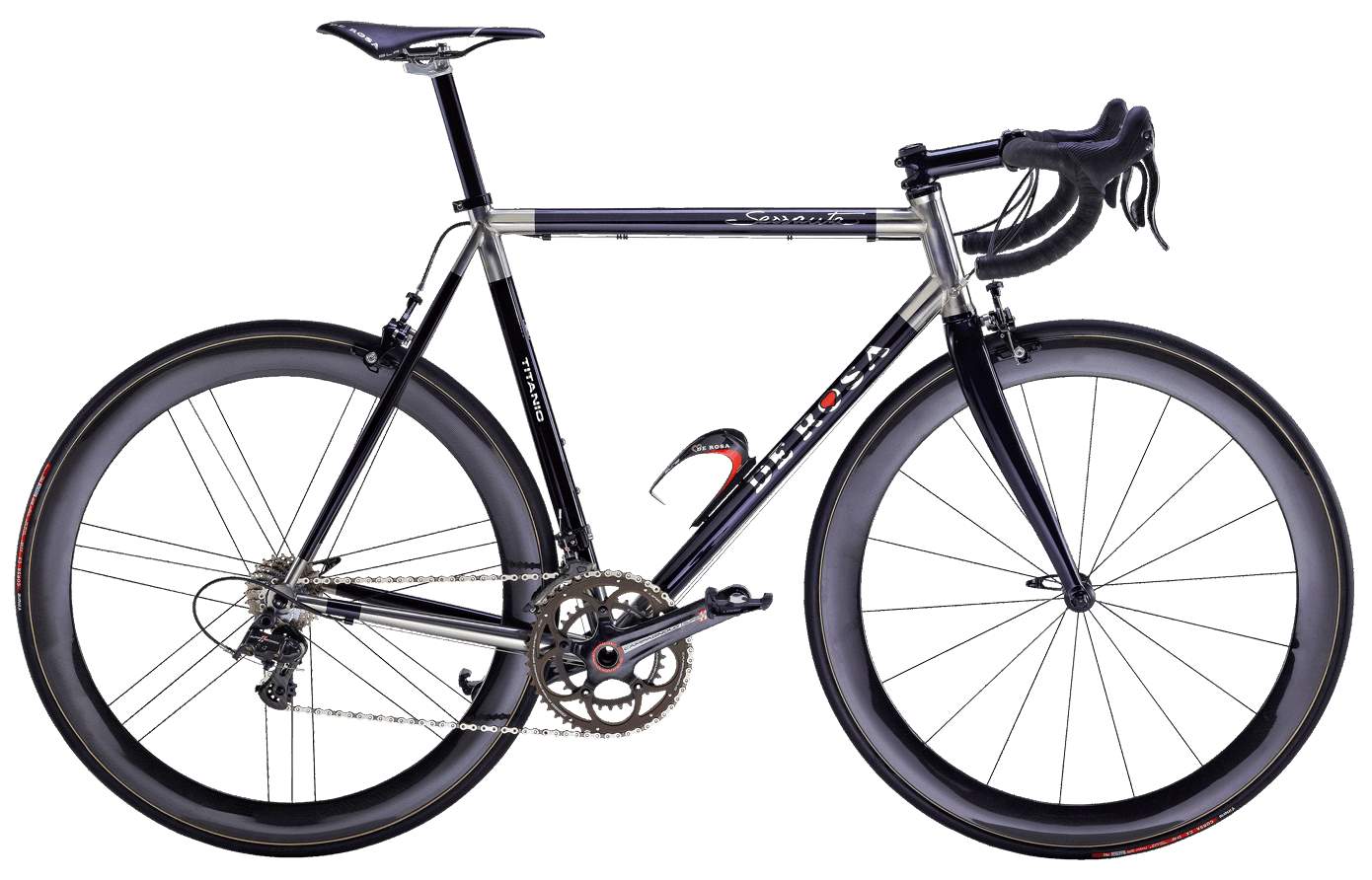
“The material. Full stop. To work titanium requires specialist knowledge and skill. This knowledge and skill that De Rosa has developed in almost 20 years make each frame an aesthetic and performance work of art.”
Ugo De Rosa
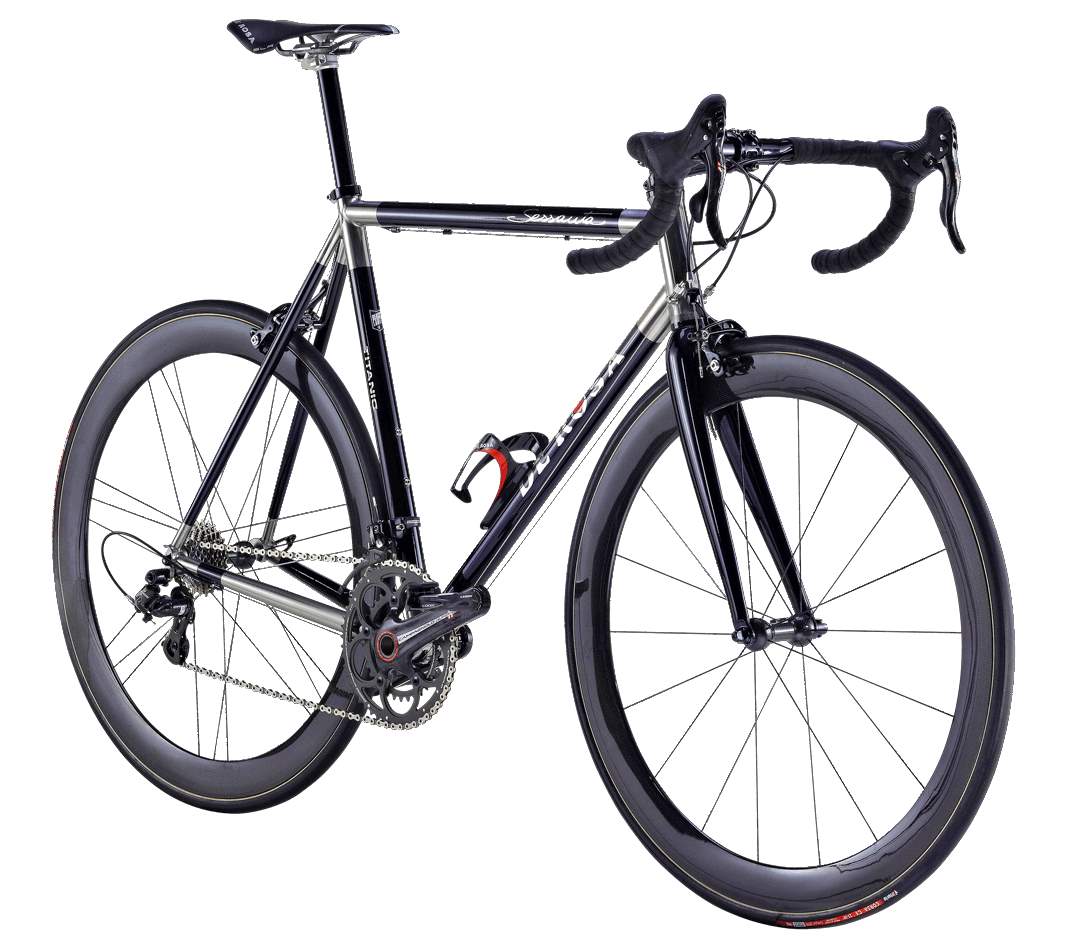
Aluminum (1996)
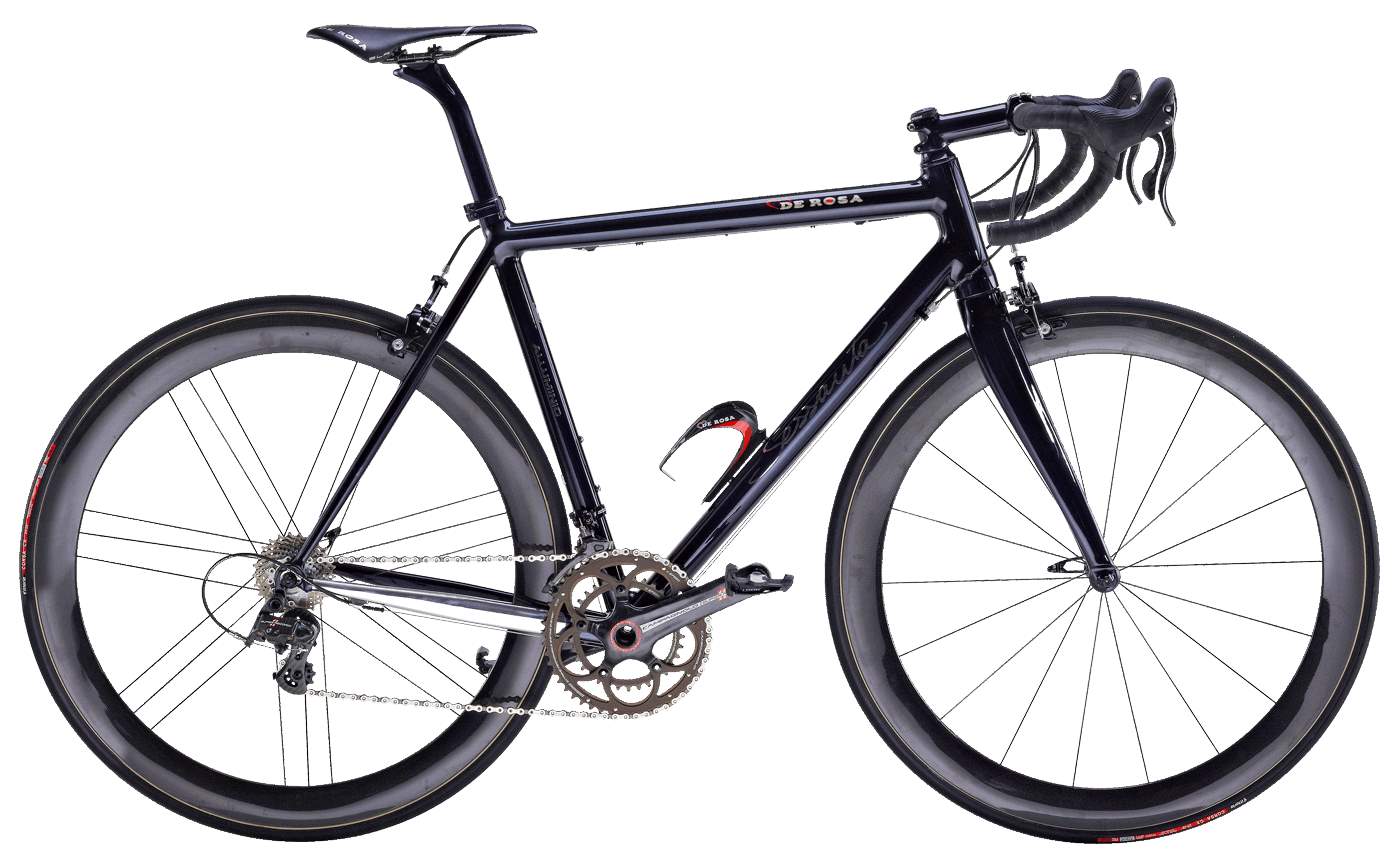
“There are many aluminum alloys that are utilized and in De Rosa, we use only the best. Aluminum represents a turning point in frame manufacturing, giving the possibility of developing new frame concepts, thanks to its ductility, lightness, and resistance. We still believe in aluminum.”
Ugo De Rosa
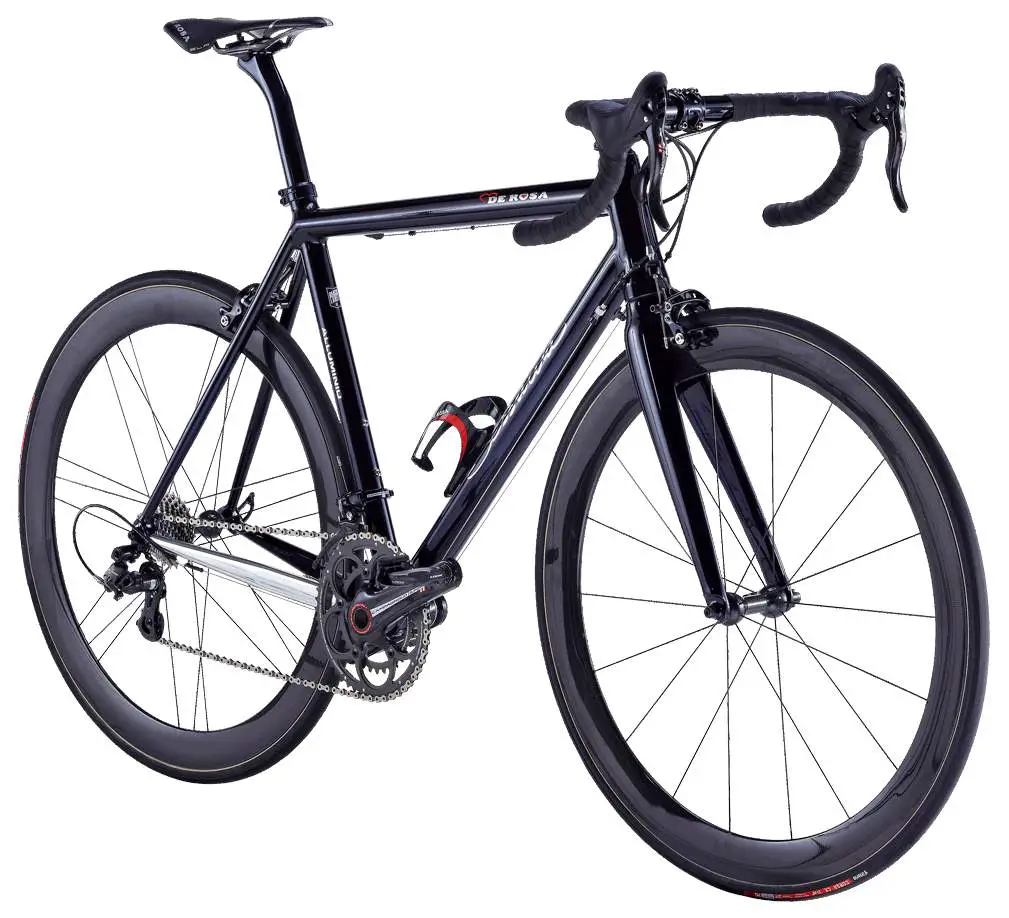
Carbon (2000)
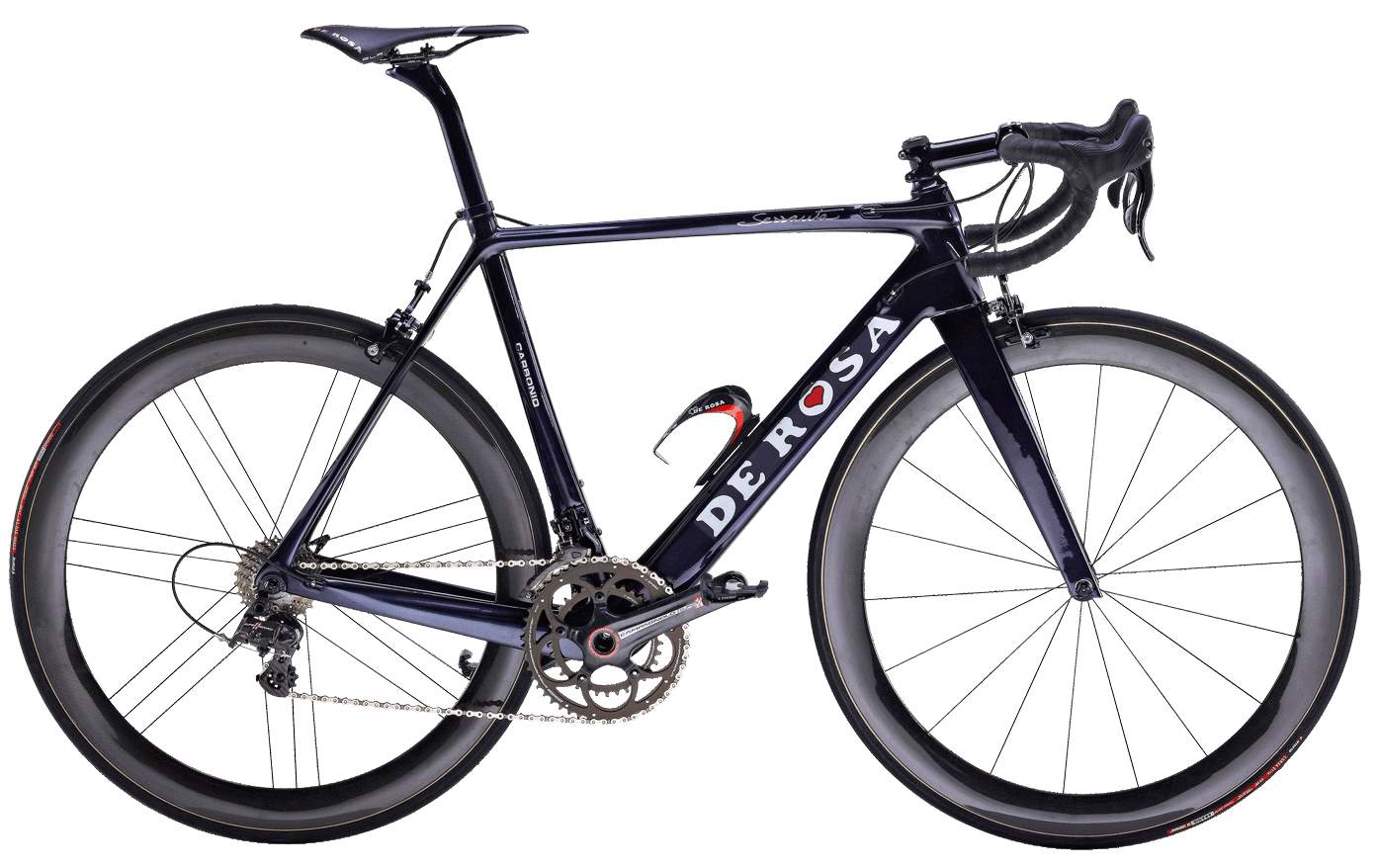
“The reference material for all current frames. Rigid, light, resistant, reactive, and comfortable. Carbon fiber is without doubt the present and the future of cycling. De Rosa proposes a blend of hi-modulus carbon, the fibers of which are hand-layered in our workshop in Cusano.”
Ugo De Rosa
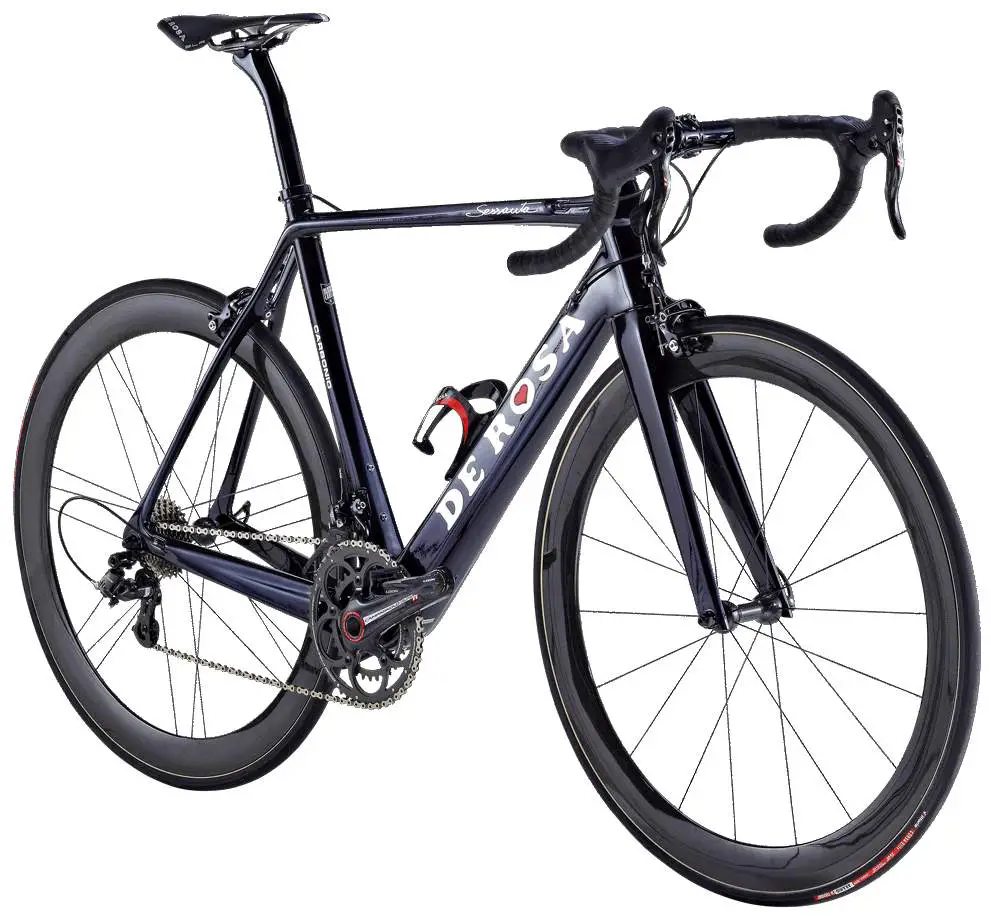
Read more about the Black Label series on the De Rosa website
The story of the De Rosa brand
De Rosa is the family brand of Ugo De Rosa. De Rosa’s company became renowned during the late 1960s and 70s for manufacturing road racing bicycles.
Company founder Ugo De Rosa was born on January 27, 1934, in Milan, Italy. Before becoming a noted bicycle frame builder, he was also an amateur racer.
De Rosa’s passion for racing led him to study mechanics and engineering at a technical college, and in the early 1950s, he opened his first shop and commenced the manufacture of racing bicycles. In 1958 he was asked by the famous cyclist Raphael Geminiani to build him a bike for the upcoming Giro d’Italia.
Following on from this initial interest, De Rosa bikes became a fixture in the professional peloton of the 1960s. The Faema team was the first team to ride De Rosa frames. Other De Rosa teams of the decade included Tbac (1964) and Max Majer (1967).
In 1969 De Rosa was approached by Gianni Motta, who wanted to engage De Rosa as his frame builder and mechanic. De Rosa accepted and became the bicycle supplier to Motta’s team as well.
It was during this period that one of the greatest stars of cycling was rising – Eddy Merckx. DeRosa built some frames for Merckx around this time, but it was not until 1973 that their relationship was formalized and De Rosa became the official frame builder and mechanic for the Molteni team which he captained.
Merckx and his teammates won nearly all the major European races including the Tour de France, the Giro d’Italia, Milan – San Remo, and the World Championship. This partnership with Molteni remained in effect until Merckx’s retirement in 1978. In 1981 De Rosa worked as a technical consultant to Merckx, who began his own bicycle manufacturing company.
In 1974 Francesco Moser engaged De Rosa for his Filotex team and went on to win the World Championship. Later, in 1982 De Rosa sponsored the Sammontana team led by Moreno Argentin and Giovanbattista Baronchelli. From 1985 to 1989 De Rosa worked with the Ariostea team – a small start-up team that would later become dominant in European racing.
Demand for De Rosa bicycles from new markets skyrocketed in the 1980s – including the United States, Russia, Japan, Belgium, and Germany. Subsequently, De Rosa’s company outgrew the small workshop adjacent to his home and moved to a larger space in Cusano Milanino. Later, his three sons entered the business, with Danilo and Doriano assisting in production management, and Cristiano taking over the commercial side of the business.
In 1990 Ugo De Rosa began to research and development of titanium tubing, culminating in a new model, the De Rosa Titanio, used by the Gewiss-Ballan team in 1994. Aluminum and carbon fiber frames were added to the product line in 1996 and 2000 respectively. In 2005 De Rosa launched its Corum frame, a lightweight steel frame built using contemporary frame building techniques.
De Rosa is now the bike sponsor of the Japan continental team Nippo-De Rosa.
- Tour de France Winner Groupsets [Year by Year, from 1937 to 2024] - July 21, 2024
- Top 18 fastest Paris-Roubaix editions - April 7, 2024
- Col de Tourmalet [Amazing photo from the 1953 Tour de France] - January 11, 2024
